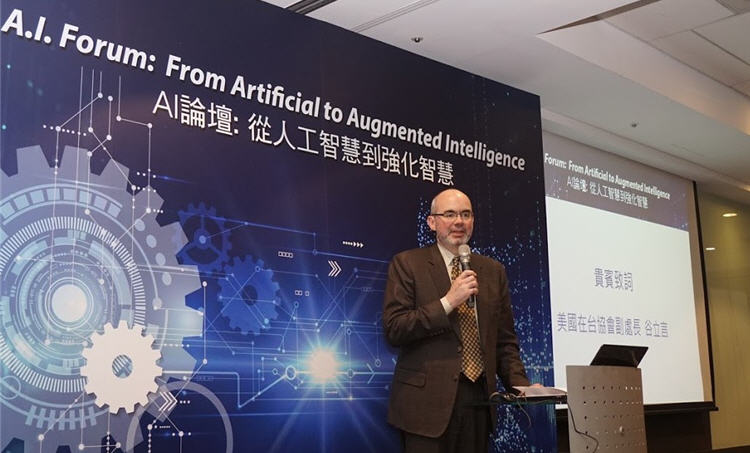September 6, 2018
AIT Official Text #: OT-1824
(As Prepared for Delivery)
Deputy Minister Hsu, Dr. Scriffignano, distinguished guests, ladies and gentlemen, good afternoon!
Thank you all for coming. I was very pleased when I learned that Dr. Scriffignano was coming back to Taiwan. He and I actually have known each other for many years. I missed his visit in February, but we are very happy to have him back.
Dr. Scriffignano was just named the United States’ 2018 Chief Data Officer of the Year, which is the highest honor in his field. In layman terms, this means he is America’s #1 Geek! I have been told in Chinese that translates as Meiguo tou hao Zháinán!
I would also like to thank Deputy Minister Hsu for coming to today’s event. Ever since Minister Chen Liang-gee took up his post at the Ministry of Science and Technology, Taiwan has been almost single-pointedly focused on making AI central to its industrial strategy. Deputy Minister Hsu has been a great partner of ours on a wide variety of projects. Thanks to the efforts of the Ministry of Science and Technology, Taiwan is quickly emerging as a global leader in the field of AI.
And American technology firms have definitely taken notice. Leaders such as Microsoft, IBM, Google, Amazon Web Services, and Uber are on the cutting edge of AI in Taiwan. U.S. firms are pioneering AI research in Taiwan, bringing AI-enabled technologies to the workplace, establishing AI innovation centers, helping cultivate Taiwan’s AI talent.
AIT Director Christensen last week outlined his vision for the future of the U.S.-Taiwan relationship. As part of the United States’ Indo-Pacific Strategy, we hope to work closely with Taiwan on infrastructure, the development of cleaner energy, and the digital economy. AI will be central to all three. In the area of Smart Cities, the United States and Taiwan aim to work together to use artificial intelligence to improve transportation systems and other basic infrastructure. In the field of energy, AI can be used to optimize energy grids and the power supply to maximize energy output while minimizing environmental harm. For the digital economy, AI has the potential to become foundational to all of Taiwan’s 5+2 innovative industries, making each one an AI-enabled innovative industry.
As many of you know, at the end of this month Taiwan will be hosting a “Global Entrepreneurship Congress Plus” event on how to use AI and the internet of things for social good. Hundreds of experts, large companies, and entrepreneurs from all over the world – including many of the brightest minds from the United States – will come to Taiwan to exchange views and explore the opportunities for the future. All of you are invited to attend this important event.
Many experts have argued that artificial intelligence will bring about massive societal transformations on par with the changes brought about by the industrial revolution. One of the biggest concerns people have is if AI takes over so many jobs, what will we do with all of the people?
Back in June, AIT organized a Symposium with Taiwan’s Digital Minister Audrey Tang on the Social Dimensions of Digital Transformation, where we looked at how as societies we can adapt to the coming changes due to AI, automation, and other digital technologies. The conclusion we reached at the Symposium was if we can get the relationship right between humans and AI, it can become a force for good. To build upon that conclusion, the purpose of today’s Forum is to examine how dowe get the relationship right between humans and AI. We are very fortunate to have gathered together today some of the brightest minds of both the United States and Taiwan to explore this important question.
Once again, I would like to thank you all for coming to what promises to be very interesting discussions. AI will change society much faster than any of us can imagine, and it is important for all of us to be ready. Today, we are going to learn how.
Thank you.
















![Video Thumbnail [Recovered]-01](../wp-content/uploads/sites/269/Video-Thumbnail-Recovered-01-1-750x450.jpg)





